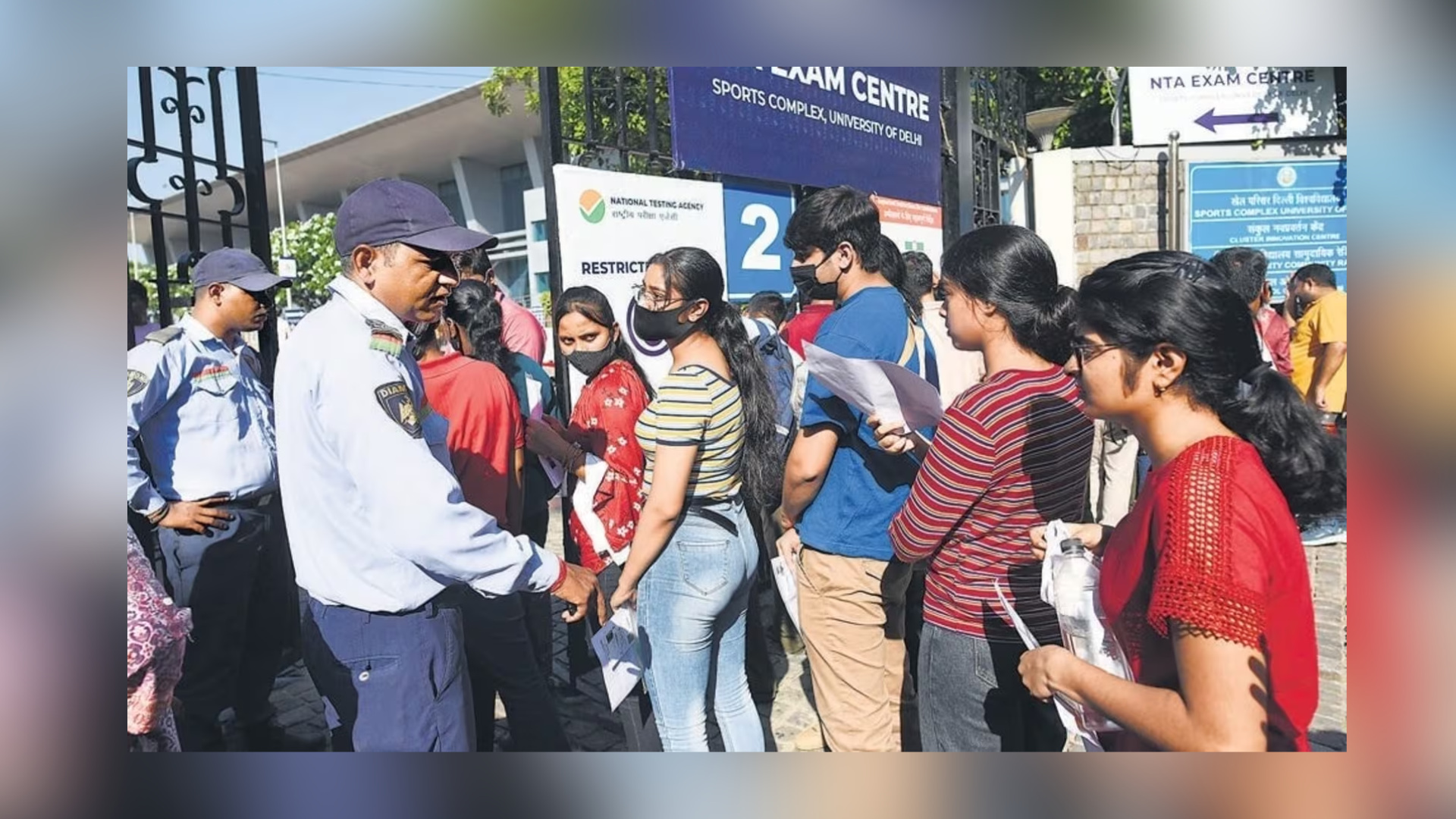


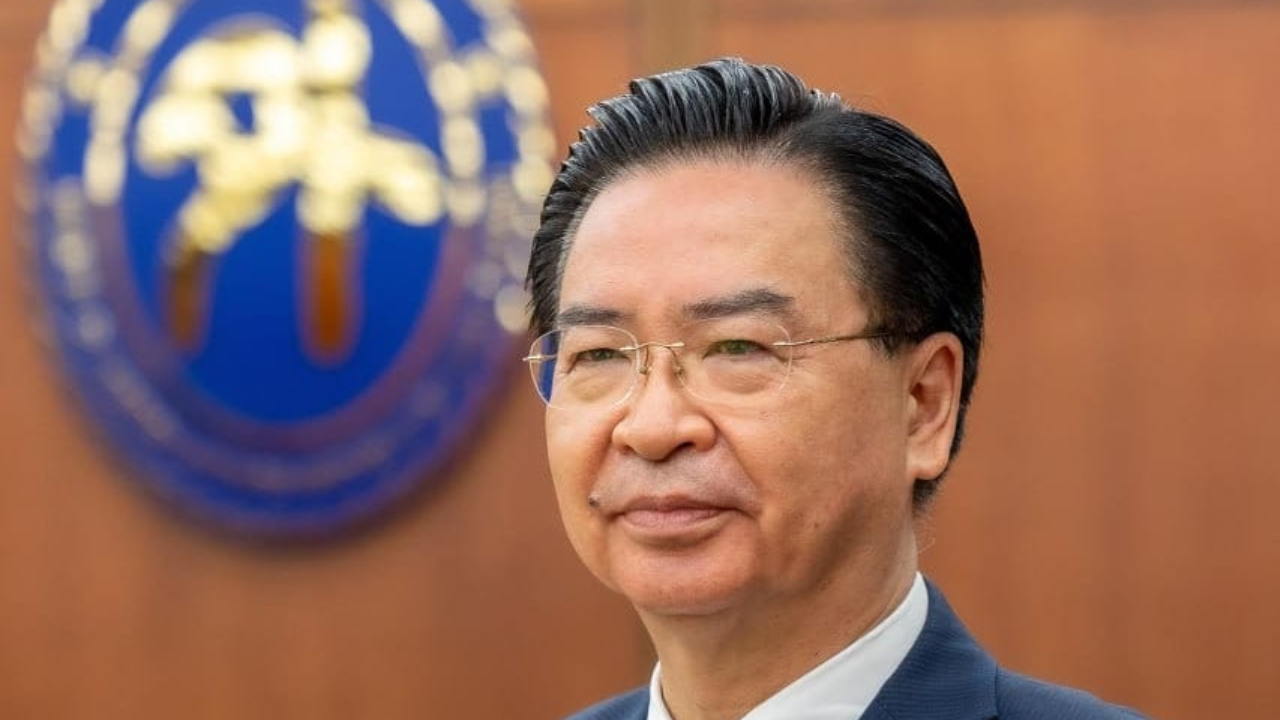
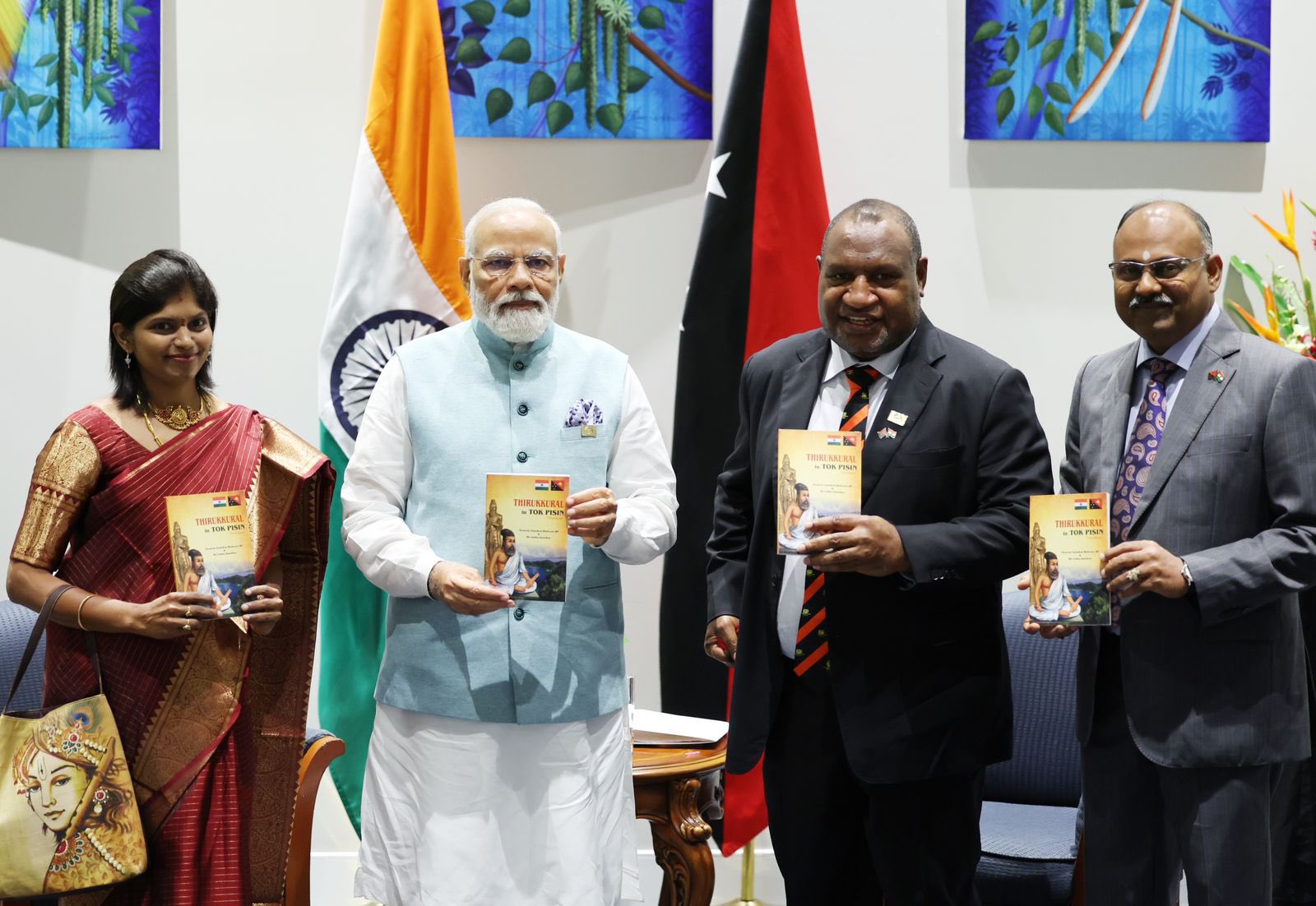
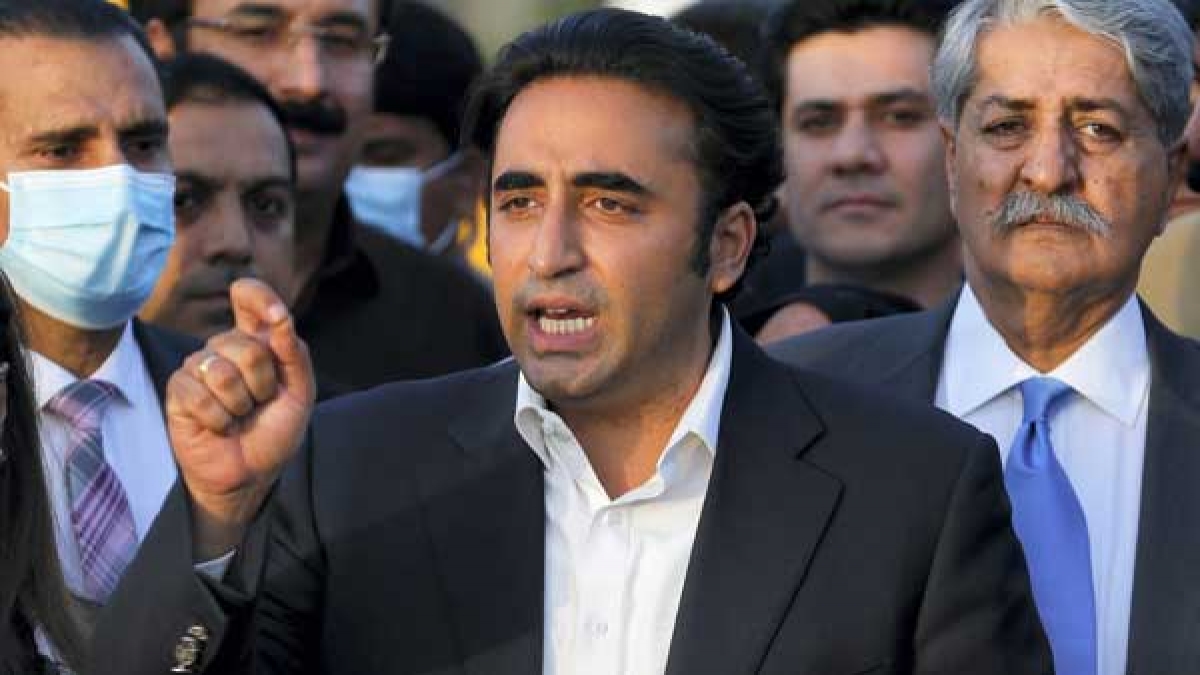

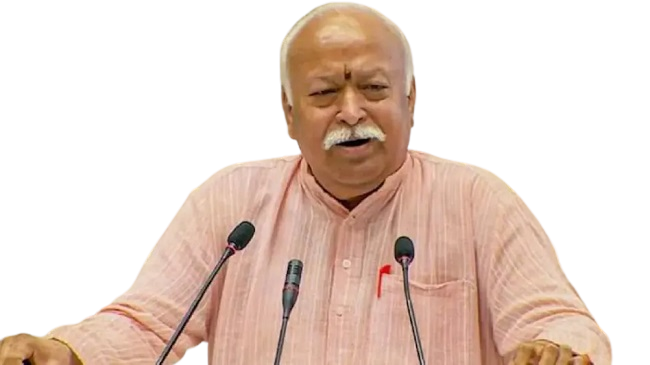
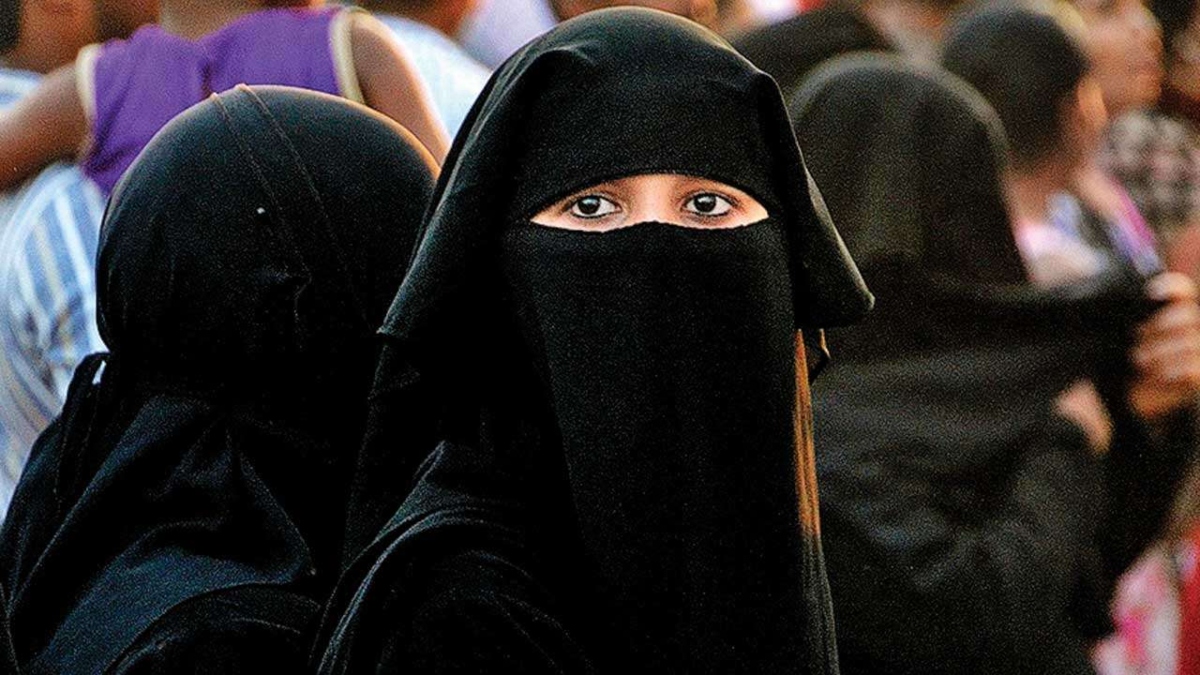


The Sarsanghchalak of RSS, Dr Mohan Bhagwat, asserted the Sangh’s viewpoints on the most pressing issues that face the nation on the auspicious occasion of Vijaya Dashmi, the founding day of the largest volunteer-based organisation in the world, “Rashtriya Swayamsevak Sangh,” or RSS as it is popularly known. During his deliberation at the RSS headquarters in Nagpur, RSS chief Mohan Bhagwat touched on a wide range of subjects, including women’s empowerment, India’s need to address population imbalances, the new education policy, and the emphasis on providing education in the mother tongue. The Reshimbag Nagpur’s annual sermon is regarded as the annual road map for the swayamsevaks. Programs, plans, and sewa prakalps are taken from this lecture and used to create the annual calendar. It is also thought to be the plan of action of the central government led by the BJP.
RSS Sarsanghchalak’s speech provided a comprehensive view of the numerous issues confronting our country. Dr. Bhagwat’s speech covered many practical aspects of economic issues, social issues such as women’s empowerment, the requisite nurturing of the youth through the New Education Policy to unleash their true potential, and advice to Indians to be a part of the nation’s and society’s renaissance rather than expecting the government to do everything. He advocated a holistic preventive approach to health rather than a therapeutic strategy. He also mentioned social justice when reiterating his ideal of every hamlet having one well, one temple, and one cremation ground. But the cornerstone of the whole address was the underlining of the dire need for a national population policy. In fact, one must applaud the RSS supremo for raking up the tabooed issue of population control and the necessity for a population policy, which has been considered to be a jinx since Sanjay Gandhi’s use of state power during the abhorrent Emergency.
Dr. Bhagwat aptly cited examples of several countries that have lost their geography due to demographics. Bharat, of course, understands this after losing a third of its land (ensuing vivisections) to religious demographics. Minorities in Pakistan and Bangladesh have suffered since Partition, despite the Nehru-Liaquat pact. A robust population policy is required for the national rebirth to occur and the nation to prosper. Geography can be influenced by demography. The economic and social growth we are discussing will be meaningless until there is demographic balance. According to Dr. Bhagwat, population imbalance affects territorial boundaries; population management and religion-based population balance are crucial issues that cannot be disregarded. East Timor is a former Indonesian territory that was merged into Indonesia in 1975. At that time, only 20% of its population was practicing Christianity. The local dictator, Suharto, was known as an extremely corrupt ruler, and, subsequently, East Timor faced extreme poverty. These conditions were leveraged by Christian missionaries, and by 1990, 95% of the population became Christian. Bishop Carlos, the brain behind the mass conversion, was even awarded a Nobel peace prize while the Christian population protested severely against the regime, forcing a referendum in 1999 that ultimately led to the creation of a separate country called East Timor. Sudan, too, had 97% of its population as Muslims, while Christians constituted 5% of the population in Southern Sudan. Notably, the southern part of Sudan had oil fields, and by 2011, 67% of the population had converted to Christianity. A similar referendum was facilitated by the UNSC after the country witnessed a large-scale civil war that ultimately led to the division of Sudan. The Kosovo region was part of the Federal Republic of Yugoslavia, with Serbs being orthodox Christians while the Albanian community was Muslim. The Albanian community had a high birth rate, which led to their population reaching 82% in 1991. A civil war broke out during 1998–99, which resulted in more than 200,000 Christian Serbs fleeing Kosovo. NATO bombed the Yugoslavian army and took over the region alongside the UN. In 2008, Kosovo became a separate country, while Serbia was divided twice during the same timeframe.
As a result, a comprehensive population policy should be introduced in India and should apply to everyone equally. He stated that resources are needed by all sections of the population. Also, the population becomes a burden if it expands without developing resources. Another point of view considers the population as a resource. We must develop a population policy that takes into account both these factors. It is noteworthy that India is expected to become the country with the largest population, which will further increase to 150 crores by 2048. It is only in 2100 that India’s population will reach the level of 109 crores when combining these figures with the fact that India has merely 2% of the global land area and a total of 4% of the global water resources. The nation’s being home to 20% of the global population is already putting immense pressure on the national resources. Population control measures appear to be necessary in order to stabilize the country’s profusely inflating population. The birth rate of Muslims is substantially higher than that of Hindus, which is roughly 2, and religious conversions greatly augment it. Compared to Muslim countries, the population growth rate of Muslims in non-Islamic nations is dangerously high! Extending medical facilities like safe abortions, sex education, and vamping up the availability of contraceptives can aid in the process. Also, the Indian government may implement institutional policies such as the two-child policy, regulations for government job eligibility, as well as provide financial incentives. However, increasing the age of marriage eligibility and female education will continue to play a significant role in stabilizing the population and safeguarding social harmony as well as national integrity.





